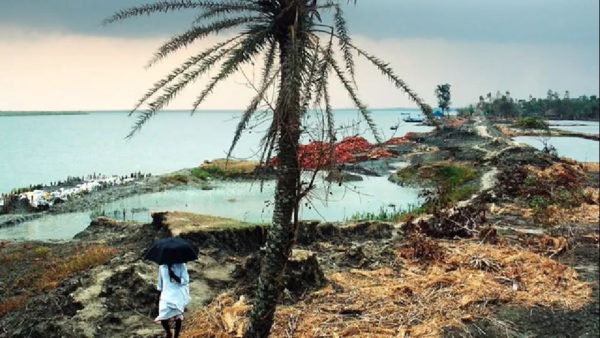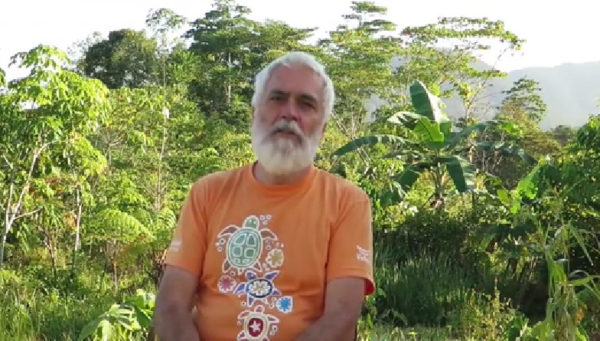 Ecology and Jesuits in Communication (Ecojesuit) is urging Jesuit institutions to commit to making ethical investments. Divestment is one strategy that “can give the social apostolate a critical focus and a greater ability to enable others, including the Church, to participate in being the occasion for change,” says Fr Pedro Walpole SJ, Coordinator of the global Jesuit network for Ecology and Research Director at the Environmental Science for Social Change within the Philippine Jesuit Province, in a video on Ecojesuit.
Ecology and Jesuits in Communication (Ecojesuit) is urging Jesuit institutions to commit to making ethical investments. Divestment is one strategy that “can give the social apostolate a critical focus and a greater ability to enable others, including the Church, to participate in being the occasion for change,” says Fr Pedro Walpole SJ, Coordinator of the global Jesuit network for Ecology and Research Director at the Environmental Science for Social Change within the Philippine Jesuit Province, in a video on Ecojesuit.
The video underscores that climate change is a global problem that needs action now. One example is the increased frequency in the last few years of seasonal variability and extreme weather events, such as Typhoon Haiyan in the Philippines.
 Quoting Pope Francis from Laudato si’, it makes the point that “Interdependence obliges us to think of one world with a common plan (LS 164)”.
Quoting Pope Francis from Laudato si’, it makes the point that “Interdependence obliges us to think of one world with a common plan (LS 164)”.
As Fr Walpole says, “If we do an ecological examen of our relationship with Christ and creation, we humbly know that we must reduce our impact and join others in action for change. We are called to discern together and to act through our institutions, in our countries, and in our global networks”.
In particular, Ecojesuit has identified the use of fossil fuels as the core factor of climate change and calls for divestment in these resources.
Fr Walpole expounds: “Mining of these and other resources in different parts of the world has resulted in the destruction of numerous indigenous communities and the death of many, where there is no recognition of their rights and relationship with the land.
“We are gradually leading by example and cleaning up our own habits, but we need to do more. We need to clean up our own institutional portfolios to encourage the spread of green energy. We need to advocate for a critical response in the business world through influencing investments. We need to support coming generations through the collective drive for divestment from fossil fuels and re-investment in an economy that cares for more than cash.”
Within the Jesuit Conference of Asia Pacific, the Australian Jesuit Province has already committed to divesting from fossil fuels. In announcing this decision in June last year, the provincial also said that the province already had investments in companies that contribute positively to society and the environment, including social bonds, wind turbine farms and solar energy.
 If we do an ecological examen of our relationship with Christ and creation, we humbly know that we must reduce our impact and join others in action for change. ~ Fr Pedro Walpole SJ
If we do an ecological examen of our relationship with Christ and creation, we humbly know that we must reduce our impact and join others in action for change. ~ Fr Pedro Walpole SJ
According to Ecojesuit, the ethical questions to consider are: 1) Do we already have an investment policy that reduces exposure to carbon-intensive companies? and 2) Have we considered reviewing our investment policy so that it will include resolutions to move away from high-carbon intense investments?
Fr Walpole explains, “Saying yes to these questions means challenging asset managers or financial committees in our universities and centres to explore the divestment process.”
The process may come in two stages. In the first stage, referred to as Tier 1 action, the initial focus for divestment are companies not willing to change their substantial involvement in fossil fuel extraction. These companies have the highest exposure to carbon risk and are unlikely able to sufficiently diversify in the short term.
“The effort is to get our institutional investment portfolio managers, through our financial committees, to weed out the top 10 fossil fuel companies from any Jesuit institutional investments,” says Fr Walpole.
Once this is achieved, the second stage is to identify indirect investments through the likes of health and retirement funds. The challenge is to divest from direct ownership of any managed funds that include holdings in fossil fuel companies.
“By excluding fossil fuel companies from the Investment Schedule of our institutions, we send a message back that they are being combed out of such secure investments,” says Fr Walpole.
He adds that addressing these questions also addresses the need for a circular economy, which espouses a no-waste concept and a process that helps us change how we think about the economy and human development. [Ecojesuit]
Ecojesuit is an online platform initiated by the Jesuit European Social Centre and the Jesuit Conference of Asia Pacific to promote global collaboration and networking on ecology.
Watch the video

